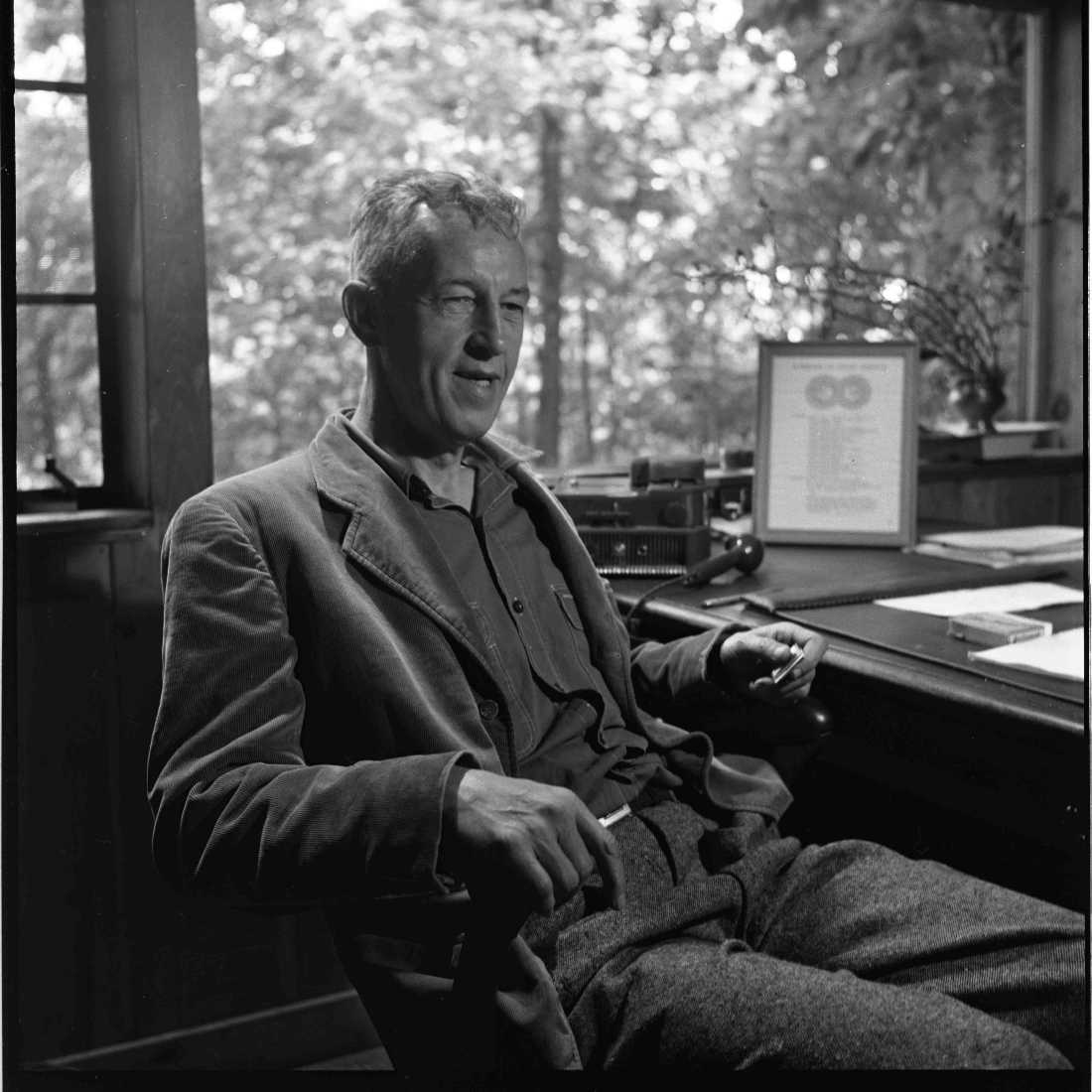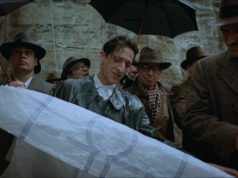The title of Bill W. refers to William G. Wilson, the former Wall Street securities analyst who lost his livelihood to alcoholism and the Great Depression and went on to found Alcoholics Anonymous. This documentary about his life will be sure to interest alcoholics and addicts of other stripes looking for inspiration in his biography. Yet the highest praise I can give it is to report that, as a non-addict, I still found myself absorbed by the man’s struggles and achievements.
First-time filmmakers Dan Carracino and Kevin Hanlon use a variety of techniques to unfold their story. Interviews with ordinary alcoholics, their faces hidden in shadow, testify to the effectiveness of the program. Historians of the organization relate its origins and growing pains. (Some of them are also alcoholics, and their faces are hidden as well.) Filmed re-enactments, with actors in costume playing out key scenes from Wilson’s early life without dialogue, are mildly distracting but keep the documentary from becoming a parade of talking heads.
The re-enactments don’t need dialogue, because Wilson himself provides spellbinding narration in extensive audio footage, recalling not only the misery wreaked upon his life by his disease but also the trial and error that led him to craft the 12 steps and the numerous setbacks he experienced along the way. (These included his right-hand man relapsing into alcoholism and several years of his own unemployment, during which he lived off the charity of his disciples while he tried to get the organization off the ground.) Speaking in the sturdy, formal cadences of an earlier time, Wilson is a polished and dryly funny raconteur. Given how prominent a place the practice of sharing stories holds in AA’s methods, it’s no wonder that Wilson is a great storyteller.
If this were all there was to the movie, it would be a hagiography, a piece fit for the introductory video of some museum and no more. Instead, Bill W. stays true to AA’s dictates of honesty, not shying away from its subject’s numerous flaws: an adulterous relationship late in life, his request for alcohol as he lay dying of emphysema. The anxiety and depression that led him to drink never left him even after AA had become a success, and they prompted his experiments with niacin and, more perniciously, LSD in the hopes that these substances might be wonder drugs to help addicts kick their habit.
Even so, the program’s staying power alone testifies to its strength, especially when you consider how many other pop-psychology “cures” for various ailments have come and gone since AA’s precepts were laid out in 1938. The inclusiveness and flexibility of AA’s approach have enabled it to help people regardless of their background, personality, or stage of sobriety. Bill W., who fretted over making AA about more than himself, would undoubtedly have been uncomfortable at being the subject of a film, but his accomplishments are worthy of one. In fact, they’re worth one of the better documentaries of the year, which is what this film is.
[box_info]
Bill W.
Directed by Dan Carracino and Kevin Hanlon. Written by Dan Carracino, Patrick Gambuti Jr., and Kevin Hanlon. Not rated.
[/box_info]












